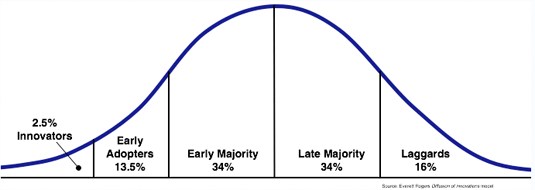The big news of the week is that German Chancellor Angela Merkel is facing the toughest challenge to her long political career from within her own Union party coalition over immigration.
My latest article at Strategic Culture talks about why this issue is so divisive and why it has a real chance to topple Merkel’s rule.
Immigration is not simply a political asset to be horse-traded by leaders in the legislature. Someone should teach Nancy Pelosi and Chuck Schumer this before the Democratic Party goes the way of the dodo.It cuts too deeply into people’s personal identity and their sense of community and culture. Like it or not, people tend to seek out people like them.We are hard-wired for this. And the cultural Marxists pushing for George Soros’ vision of the Open Society are bumping up against one of the most basic of human biases and survival instincts. Demonizing and dehumanizing people for political gain is not a path of societal cohesion but rather violence and civil war.
It is for this reason that movements like Brexit and the rise of both nominally left and right wing populists in Italy were able to take power. People respond instinctually to this issue. This is hind brain stuff and not easily overcome.
Whether Merkel survives this challenge or not is up to her. If she digs her heels in and tries to break CSU Leader Horst Seehofer’s opposition to her EU-first immigration policy then it will lead to a further fracturing of the German political landscape in the long run.
She may hold onto power for now only to lose the war permanently in the future.
The 16% Lesson of Brexit
But, not all populist uprisings are created equal. As we can see in the U.K., Brexit drove the rise of UKIP as Tories defected on the issue of immigration. But, not on much else. And once the Brexit vote happened, and UKIP were polling in the 10-12% range, the main reason for voting UKIP evaporated.
Nigel Farage stepped down, UKIP lost its leadership, and the voters’ protest was over. Tories went back home and are now being betrayed in parliament by their MP’s.
This is the blueprint for how NOT to pull off a major political revolution. And the U.K. will learn that lesson the hard way unless something drastic happens soon, like the ouster of Prime Minister Theresa May and a pro-Brexit replacement elected.
The problem for UKIP was never crossing the 16% threshold from ‘protest movement’ to self-sustaining party.
Everett Rogers’ Diffusion of Innovation Theory is applicable to politics as well as products. The idea being that it takes around 16% adoption for a new technology, ideology, etc. to have the potential to become something bigger. This was made popular by Malcolm Gladwell in his book Tipping Point.

The Rogers Curve
That idea is expounded upon by Geoffrey Moore which describes ‘The Chasm’ between the Early Adopters and the Early Majority. As it applies to getting through “The Chasm” Chris Maloney argues the marketing has to change in order to breach the chasm between the two demographics.

At that point the marketing has to focus more on ‘social proof’ than innovation of the idea or product. At this point it’s more about ‘join the new group because others have’ and not to keep harping on the same message, which will get stale because it is no longer interesting because it isn’t novel.
The Chasm
In 2012 I kept close tabs on the way Ron Paul’s rise in the polls was happening. In 2008 I knew he would never break through the 16% barrier nationally. In certain sympathetic states he would, but not nationally.
In 2012, however, he did and the primary schedule was changed to dampen his growth. The Powers That Be understand this phenomenon very well and they use it to great effect on any number of issues.
But, once Paul broke through the 16% barrier he should have moved up quickly into the high 20s.
Note what happened with Lega’s support in Italy. 10% to start the year. 17% by the election. 28% today.
The rebranding from the secessionist Northern League to the more inclusive problem-solving party for all of Italy based on Immigration to Lega was immensely successful.
It didn’t work for Paul because, I believe, systemic vote fraud occurred within most of the GOP primaries, not because he didn’t have the support. There was very strong statistical analysis done on the results to hand Mitt Romney states and delegates that Paul actually won.
UKIP never broke through the barrier because Nigel Farage thought his work was done with Brexit. He made a massive tactical error, instead of pressing on by rebranding UKIP into the party that will deliver Brexit and real reform to the U.K.
Don’t Fall in AfD
So, let Brexit be a lesson for Alternative for Germany (AfD) and their protest support within Germany. With numbers plateauing in the 13-14% range AfD is in trouble of their message getting stale.
This is why I wanted Merkel to seat another cartel-style ‘Grand Coalition’ with the SPD. It would give AfD time to get comfortable in the Bundestag and gain experience and exposure governing.
Then they can go from the ‘anti-immigrant’ protest party to a viable, responsible governing party. It’s imperative that they look like a group that has Germany’s best interests at heart by holding office and solving problems.

“Masterplan Purest Campaign Tactic” Seehofer change electors again (new government)
This feels like mixed messaging to me. Stand your ground on real reform but keep the talk of a new election to a minimum until The Chasm has been breached. Because that won’t serve AfD as well as they think at this point.
Germany is different than Italy. The Italians are used to a new government failing every two years or so. Germany is not at all used to that kind of turmoil at the top. So, if this government fails it has to look like incompetence and intransigence of existing leadership not that AfD is hoping for it to fail for its gain.
They have to make themselves the only true Alternative for Germany or inertia will send voters back to the SPD or towards the Greens, which is already happening (Greens just polled 14%).

Then let the people themselves take you to the next plateau. That’s the path to becoming the major party in Germany. The latest national polls, trumpeted by AfD themselves have them at that crucial 15-16% level. This is up form the 12.6% that put them in the Bundestag in the first place.
These numbers are not good enough for any kind of change at the polls.
The Gambit
This morning’s compromise by CSU leader Horst Seehofer to give Merkel two weeks to accept a piecemeal implementation of his new immigration policy is a bit of wrangling on his part to put the ball in Merkel’s court.
He’s trying to play the game I just described above. Put the onus on Merkel to accede to the people’s will. Give her a chance to save her government and look like the voice of stability and reason.
Is it a bit of a cop-out? Yes. But it’s the right course politically. Let people get used to the idea of an out-of-touch Merkel needing to be overthrown versus the shock of something happening before most people have had a chance to process what’s happening.
With Seehofer’s CSU’s support in Bavaria dropping quickly, now below 40% in latest polling, the possibility of an upset in October’s elections is high. All AfD has to do to push through The Chasm here is present itself as a strong partner and a voice of stability versus the radicals.
If they don’t then Merkel will use this as a wedge to marginalize both vectors of opposition and re-establish control. This is the most dangerous period and the one where simply anything is possible.